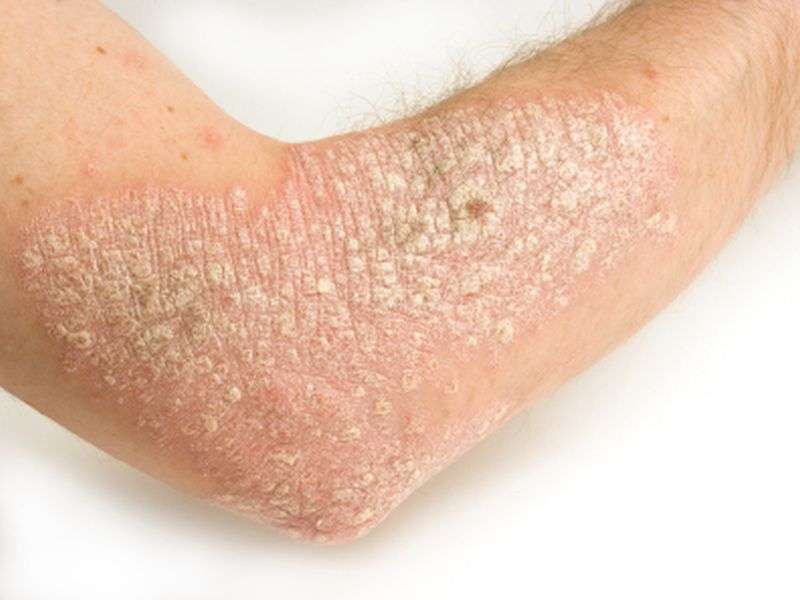(HealthDay)—Gastric bypass, but not gastric banding, is associated with reduced risk of psoriasis, progression to severe psoriasis, and psoriatic arthritis, according to a study published online Dec. 21 in JAMA Surgery.
Alexander Egeberg, M.D., Ph.D., from the Herlev and Gentofte Hospital in Hellerup, Denmark, and colleagues conducted a population-based study to examine the incidence and prognosis of psoriasis and psoriatic arthritis in patients undergoing gastric bypass and gastric banding. Data were included for 12,364 Danish patients receiving gastric bypass and 1,071 receiving gastric banding.
The researchers found that the adjusted hazard ratios of psoriasis were 0.52 (95 percent confidence interval [CI], 0.33 to 0.81) for gastric bypass and 1.23 (95 percent CI, 0.40 to 3.75) for gastric banding. For progression to severe psoriasis, adjusted hazard ratios were 0.44 (95 percent CI, 0.23 to 0.86) and 1.18 (95 percent CI, 0.12 to 11.49) for gastric bypass and gastric banding, respectively. For psoriatic arthritis, the adjusted hazard ratios were 0.29 (95 percent CI, 0.12 to 0.71) and 0.53 (95 percent CI, 0.08 to 3.56) for gastric bypass and gastric banding, respectively.
"This finding may be caused by the postoperative differences in nutrient intake and/or weight loss as well as differences in the secretion of hormones that potentially modulate inflammation," the authors write.
Several authors disclosed financial ties to the pharmaceutical industry.
More information:
Full Text
Editorial (subscription or payment may be required)
Journal information: JAMA Surgery
Copyright © 2016 HealthDay. All rights reserved.






















